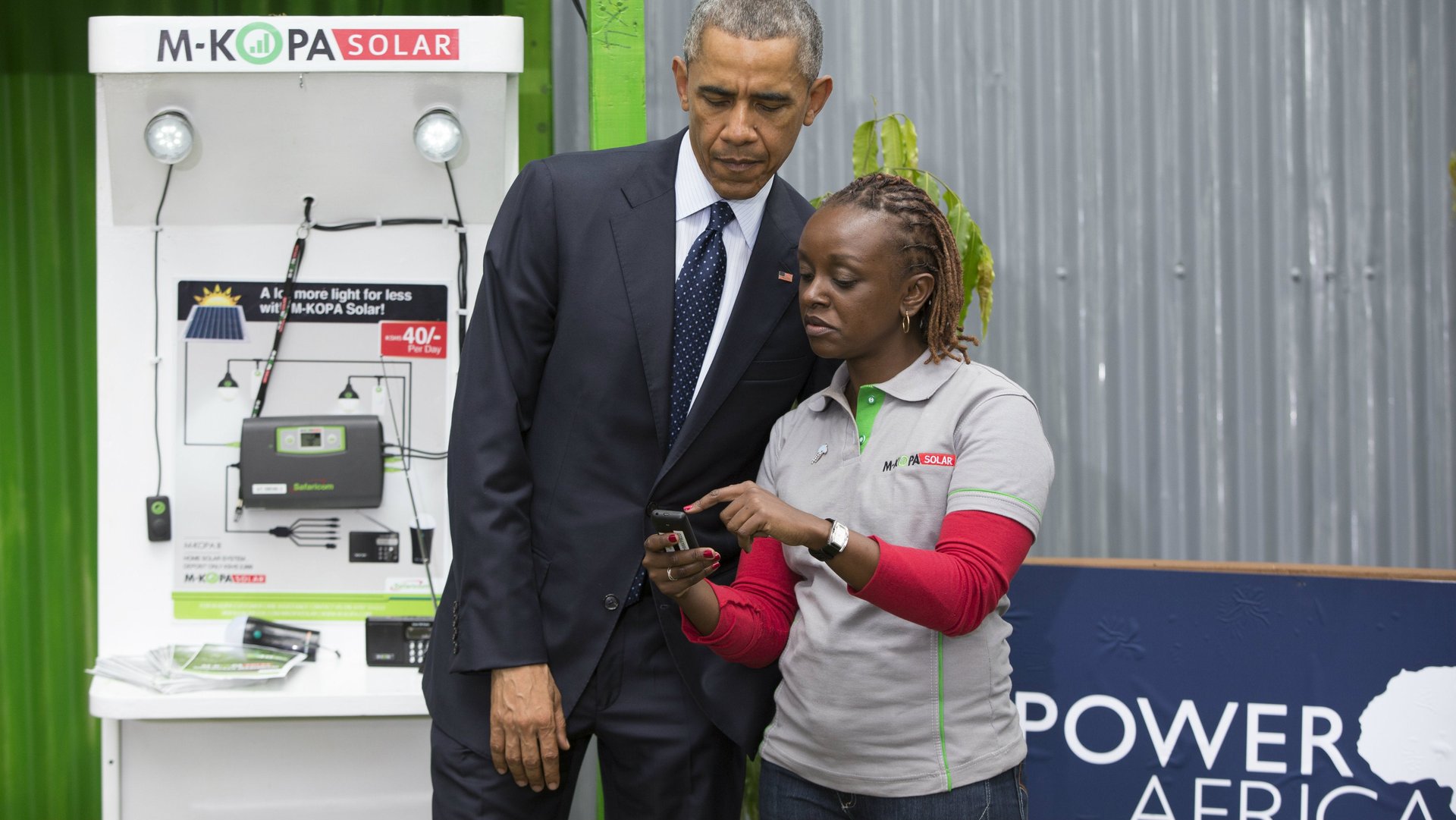Kenya’s M-Kopa is set to deliver solar power to a million homes
Renewable energy projects in sub-Saharan Africa have attracted over $25 billion in investments to date. The African Union recently announced a plan to invest another $20 billion. Yet it’s an investment of just 50 cents a day that could make the biggest difference for renewable energy in Africa.


Renewable energy projects in sub-Saharan Africa have attracted over $25 billion in investments to date. The African Union recently announced a plan to invest another $20 billion. Yet it’s an investment of just 50 cents a day that could make the biggest difference for renewable energy in Africa.
With an up-front cost of 35 dollars and daily payment of 50 cents for one year, Kenyans, Ugandans, and Tanzanians who live off-the-grid can get energy access through solar company M-Kopa. This month the company closed a $19 million financing round led by Generation Investment Management, and revealed plans to reach one million homes in East Africa by the end of 2017. It already reaches 275,000 homes. Yet, M-Kopa’s key innovation is using the mobile phone to show how solar energy can be marketed at scale in Africa.
With hundreds of millions of people in Africa without access to traditional electricity grids, the issue has come to the fore in recent years, as more African leaders, industrialists and international partners see the lack of regular electricity as one of the key obstacles to the continent’s development. In the absence of the hundreds of billions of dollars needed to build new power grids, more attention has been paid to innovative, green-friendly alternative forms of power. Solar has always been at the top of that list of options but it has also always been difficult to get the technology to work at large scale with many homes. M-Kopa, which was founded in 2012, believes it is proving how to meet that challenge.
About the size of an iPad mini (but a few inches thicker) M-Kopa’s home solar energy system provides three lights, five USB connections for phone charging, and a portable radio. Only one third of Kenyans are connected to the national grid, and more than half of Kenyans still rely on kerosene, batteries, and candles for light and power, according to the company.
“Prices for renewable technologies, especially solar and wind-power, are falling at an extraordinary rate to the point at which they are competitive with fossil fuels,” wrote the African Progress Report panel earlier this year, which is headed by Kofi Annan.
Even with the falling prices of solar technology, M-Kopa’s ability to scale is because of its cost compared to alternative forms of energy. Solar energy for lighting in Kenya can be 10% cheaper than the national grid, and 10 times cheaper than kerosene wick lamps.
Once the owner of the M-Kopa solar energy system pays off the installment plan, they have two options: keep it, or refinance the system and get additional products like a fuel efficient stove or refrigerator.
“We wanted to build something that was really truly scalable and you have to be able to show that you can make a return for investors,” said Jesse Moore, co-founder of M-Kopa. The “irony of charity is that the money is coming from somewhere else, so the customer doesn’t have the same power,”
Many of the executives for M-Kopa also worked on the popular mobile money system M-Pesa, which started off as a corporate social responsibility project that wasn’t expected to make money. Today, 86% of Kenyan households use mobile money, including every customer of M-Kopa.
In each solar kit is a sim card that customers transfer money on to every day using their mobile phones. If the customers don’t pay, the system doesn’t work. But the pay-as-you-go system also gives customers more control—if customers are not using the solar energy system or if it breaks, they won’t pay.
“Tech is great and underlies everything we do , but customer service and the ground game is what really matters” said Moore.